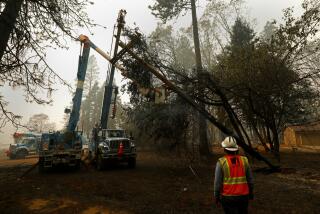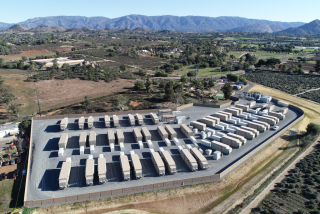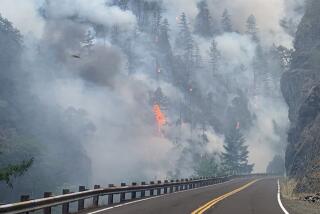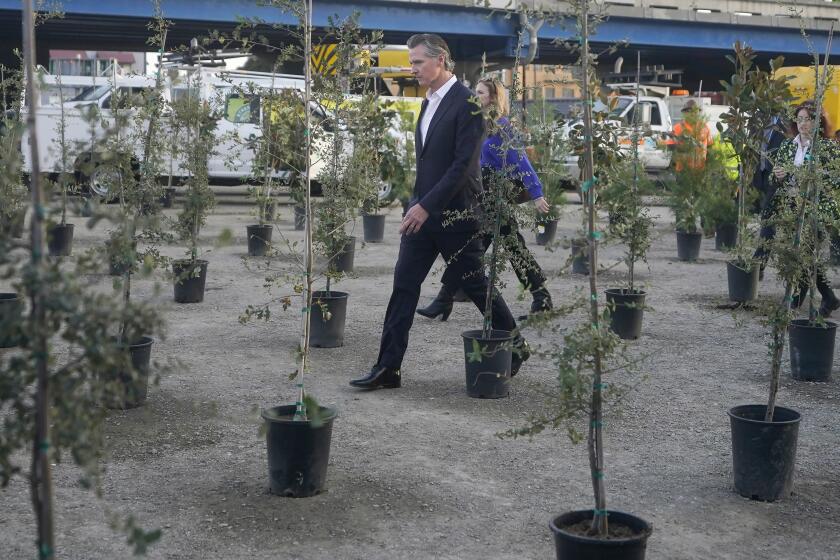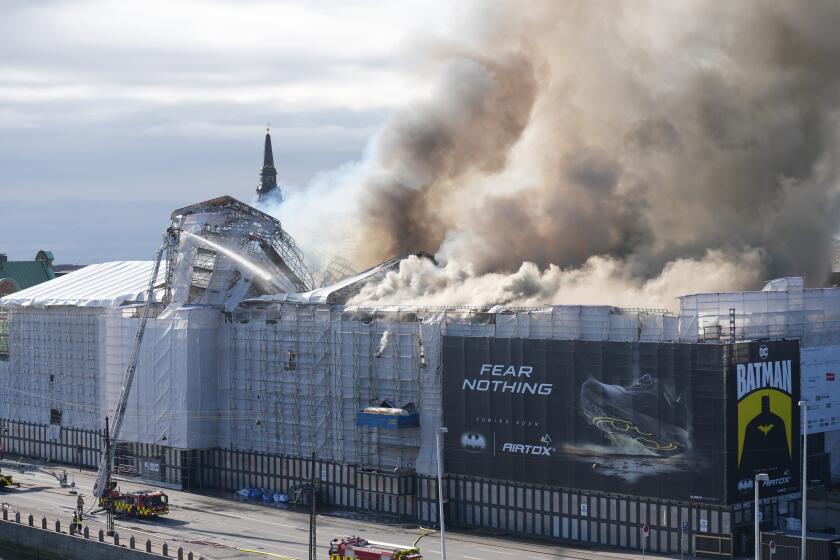Power outages leave those with disabilities especially vulnerable. Help remains a work in a progress
As wildfires continue to rage across California, thousands of residents prepared for more power outages this weekend. The most recent blackouts — intended to prevent fires sparked by windblown power lines — have already affected more than half a million residents, adding particular stress to those with disabilities.
In an ideal world, the most vulnerable communities would have received months of advance notice from Pacific Gas & Electric Co. and from Southern California Edison about the power shut-offs, with ample time to plan. That’s what Lenka Vodicka of Nevada City, Calif., would have preferred as she faced her second power outage in less than two weeks, with a warning of another coming soon.
Vodicka has a chronic genetic disease. When she falls out of step with her routine, her immune system is weakened. Vodicka doesn’t struggle as much as those on ventilators or those who rely on electric wheelchairs, but her situation is representative of what many with disabilities face under the stress of rushing to find alternative solutions to sustain their health. A 48-hour notice — the standard for warning — is not always enough time to make arrangements for backup respirators or physical assistance.
“I feel like it’s a huge pitfall that no one approached me about” the state’s medical baseline mitigation program, she said.
Vodicka is one of thousands who are part of that program, which offers financial assistance to those who rely on medical equipment. By PG&E’s count, there are nearly 10,000 medical baseline customers who may be affected by the power outages. Southern California Edison counts more than 76,000 medical baseline customers across its service territory and nearly 17,000 who are identified as “critical care” customers.
It’s unclear how many of those will ultimately be affected by outages. During the last power shut-offs, the medical baseline program was not immune to the communication problems that plagued customers during outages, made worse by websites that did not load.
This month, Gov. Gavin Newsom signed legislation that included requirements for investor-owned utilities to establish plans to lessen the effects of outages on customers with sensitive medical needs and notify all emergency responders, healthcare providers and public safety groups within an outage area. The follow-through action to mitigate the issue, however, remains a work in progress.
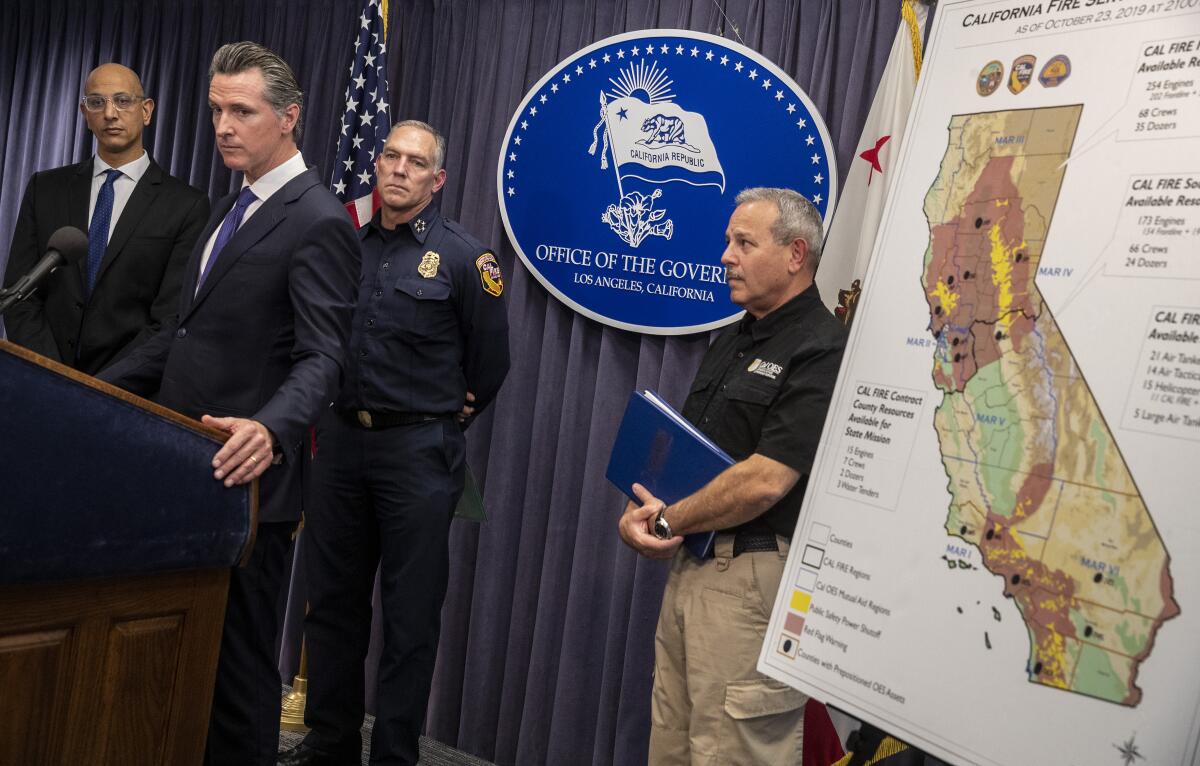
During a Thursday news conference, at which Newsom lambasted utilities companies for a lack of advance planning, officials said efforts to better support customers with disabilities are ongoing.
“The whole topic of medical baseline continues to be a challenge with the utilities in their ability to have a granular situational awareness of that particular customer base,” said Mark Ghilarducci, director of the California Governor’s Office of Emergency Services.
Representatives from that office are working with utilities and local agencies to improve outreach to individual customers. Dr. Mark Ghaly, secretary of the California Health and Human Services Agency, said officials are also connecting with hospitals, nursing homes and healthcare facilities to ensure that they have access to backup generators.
Adam Brown of the Disability Services & Legal Center in Santa Rosa said his group is partnering with various Center for Independent Living sites and PG&E to distribute backup battery systems on wheels to customers in need.
“It’ll run a refrigerator for 24 hours. It could easily be useful if someone had a hospital bed,” Brown said.
He also said PG&E is distributing motel vouchers to centers such as his for customers searching for power.
People typically learn of the medical baseline program through word of mouth, online and through their doctors, healthcare facilitators and disability advocate groups, Southern California Edison said. According to PG&E, outreach is conducted through automated calls, texts, emails and, in certain instances, by knocking on doors. The primary focus is on those who rely on electricity “for critical life-sustaining equipment.”
State Sen. Henry Stern (D-Canoga Park) doesn’t believe the efforts to inform people of their options have been enough. The elderly and those with disabilities are the most vulnerable people during an outage, he said. Because the state program is an opt-in service, in which people must apply for acceptance, many who might qualify for it are not included, Stern said.
“We actually don’t have an accurate picture of who’s vulnerable right now,” he said. “Some seniors don’t even know it exists. That’s unconscionable.”
Officials called on neighbors to help one another, advice that has been reiterated by the utilities.
But that reliability can prove to be difficult when the neighborhood as a whole is scrambling.
During a power outage two weeks ago, a woman with multiple sclerosis said that hours after she lost power in Chatsworth, she was ordered to evacuate as a fire had erupted two miles away in Porter Ranch. But her car was trapped behind her electric garage door and she was unable to lift it on her own. Without a neighbor in sight, she waited in the hope that a police officer would drive by, until she finally flagged someone down to help her.
Preparing for a major outage can prove burdensome, too.
“All these hours of having to prepare taxes my immune system and energy resources,” Vodicka said.
Officials recommend that those who need special assistance contact PG&E or Southern California Edison directly by phone or website, reach out to local disability groups or, in the event of an emergency, call 911.
More to Read
Start your day right
Sign up for Essential California for news, features and recommendations from the L.A. Times and beyond in your inbox six days a week.
You may occasionally receive promotional content from the Los Angeles Times.
